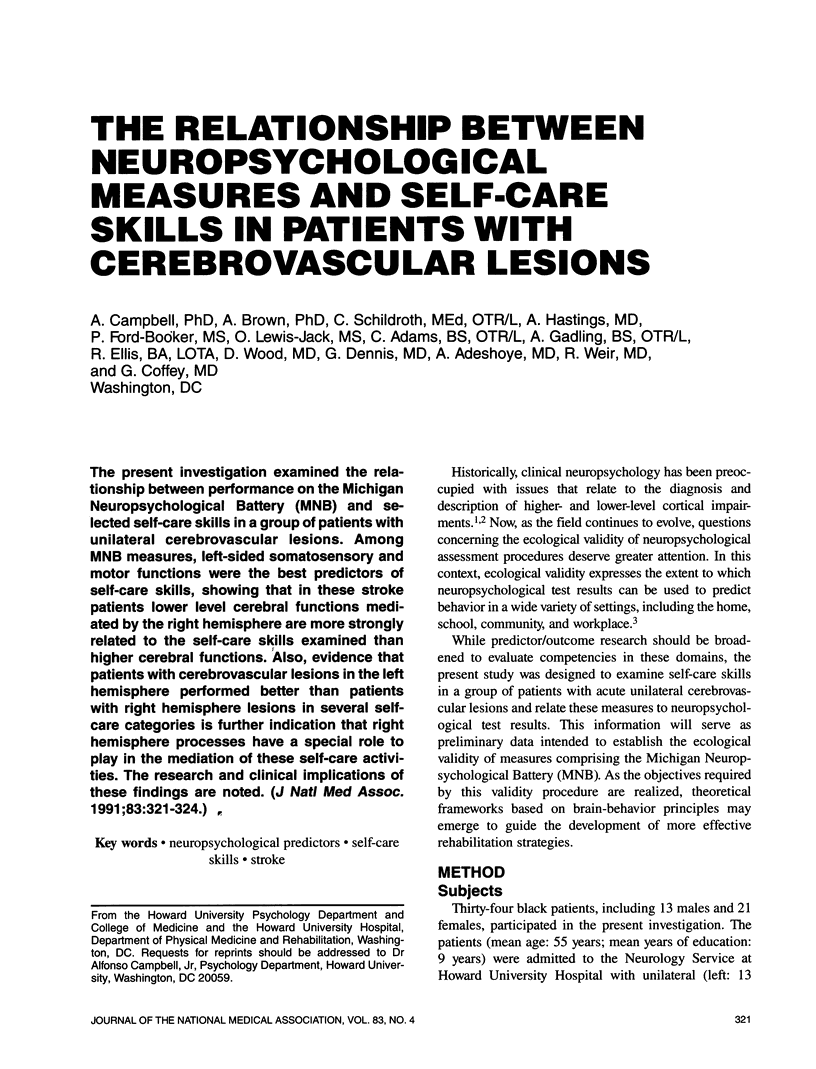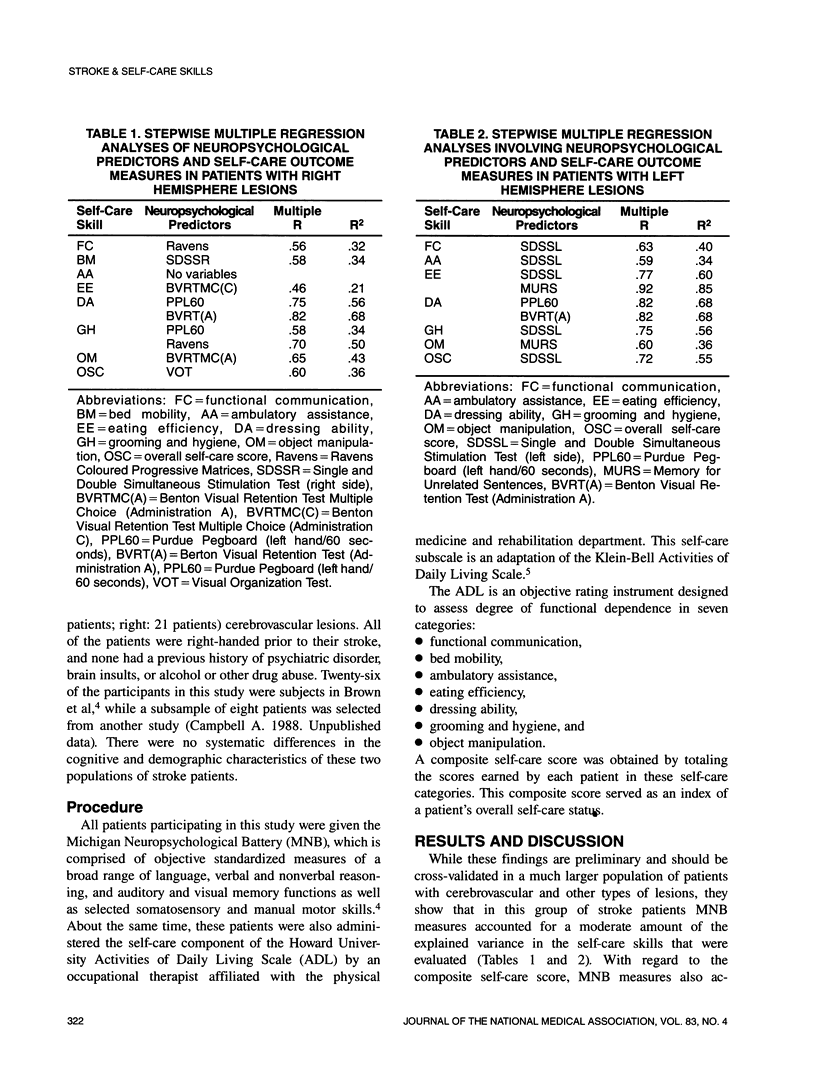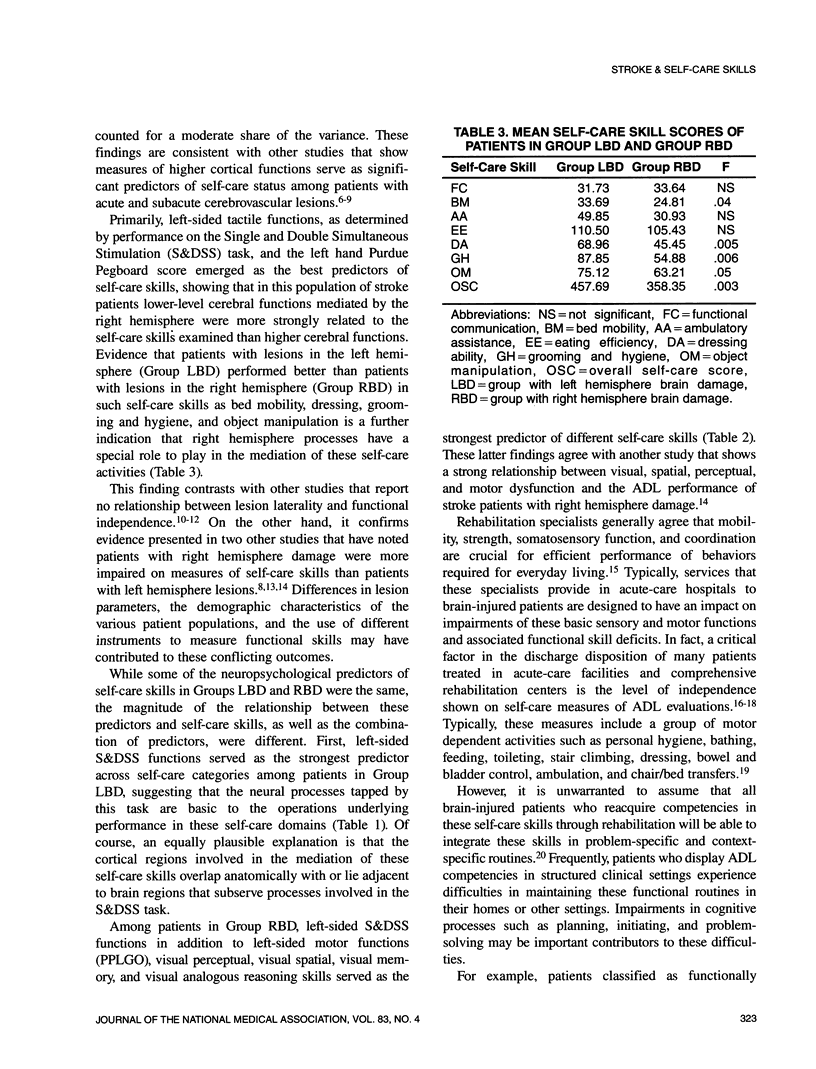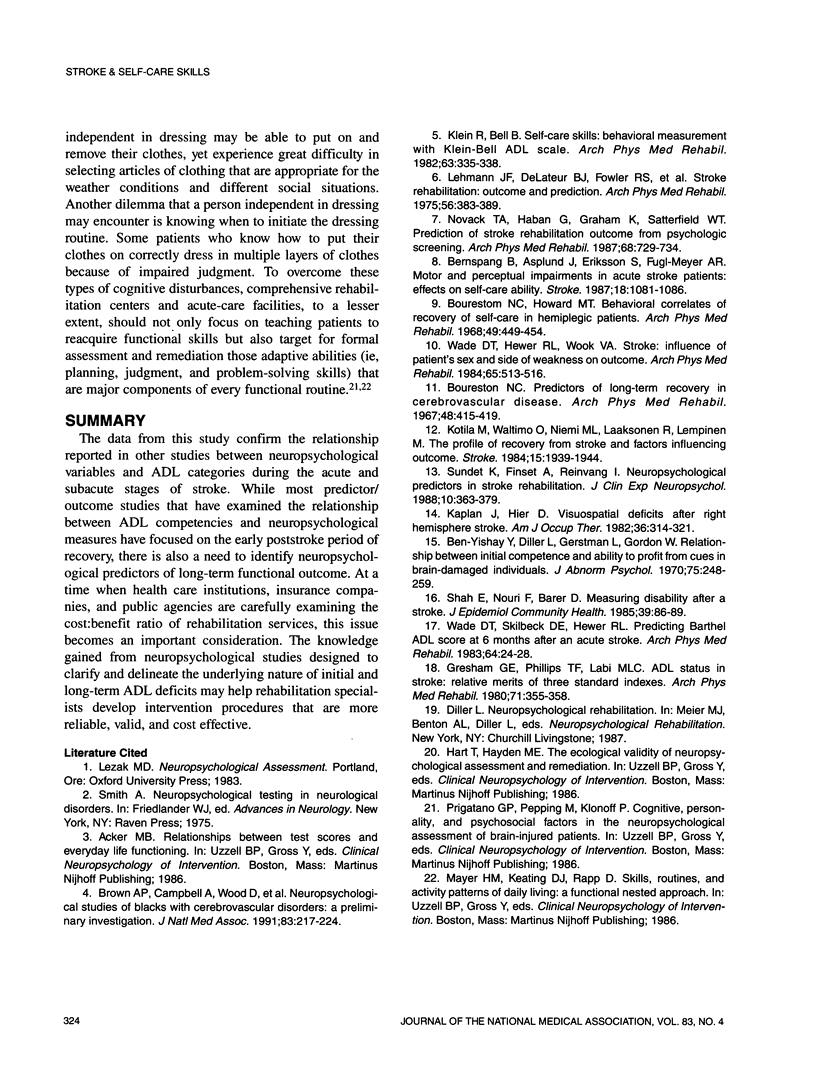Abstract
The present investigation examined the relationship between performance on the Michigan Neuropsychological Battery (MNB) and selected self-care skills in a group of patients with unilateral cerebrovascular lesions. Among MNB measures, left-sided somatosensory and motor functions were the best predictors of self-care skills, showing that in these stroke patients lower level cerebral functions mediated by the right hemisphere are more strongly related to the self-care skills examined than higher cerebral functions. Also, evidence that patients with cerebrovascular lesions in the left hemisphere performed better than patients with right hemisphere lesions in several self-care categories is further indication that right hemisphere processes have a special role to play in the mediation of these self-care activities. The research and clinical implications of these findings are noted.
Full text
PDF



Selected References
These references are in PubMed. This may not be the complete list of references from this article.
- Ben-Yishay Y., Diller L., Gerstman L., Gordon W. Relationship between initial competence and ability to profit from cues in brain-damaged individuals. J Abnorm Psychol. 1970 Jun;75(3):248–259. doi: 10.1037/h0029368. [DOI] [PubMed] [Google Scholar]
- Bernspång B., Asplund K., Eriksson S., Fugl-Meyer A. R. Motor and perceptual impairments in acute stroke patients: effects on self-care ability. Stroke. 1987 Nov-Dec;18(6):1081–1086. doi: 10.1161/01.str.18.6.1081. [DOI] [PubMed] [Google Scholar]
- Bourestom N. C., Howard M. T. Behavioral correlates of recovery of self-care in hemiplegic patients. Arch Phys Med Rehabil. 1968 Aug;49(8):449–454. [PubMed] [Google Scholar]
- Bourestom N. C. Predictors of long-term recovery in cerebrovascular disease. Arch Phys Med Rehabil. 1967 Aug;48(8):415–419. [PubMed] [Google Scholar]
- Brown A., Campbell A., Wood D., Hastings A., Lewis-Jack O., Dennis G., Ford-Booker P., Hicks L., Adeshoye A., Weir R. Neuropsychological studies of blacks with cerebrovascular disorders: a preliminary investigation. J Natl Med Assoc. 1991 Mar;83(3):217–224. [PMC free article] [PubMed] [Google Scholar]
- Ebrahim S., Nouri F., Barer D. Measuring disability after a stroke. J Epidemiol Community Health. 1985 Mar;39(1):86–89. doi: 10.1136/jech.39.1.86. [DOI] [PMC free article] [PubMed] [Google Scholar]
- Gresham G. E., Phillips T. F., Labi M. L. ADL status in stroke: relative merits of three standard indexes. Arch Phys Med Rehabil. 1980 Aug;61(8):355–358. [PubMed] [Google Scholar]
- Kaplan J., Hier D. B. Visuospatial deficits after right hemisphere stroke. Am J Occup Ther. 1982 May;36(5):314–321. doi: 10.5014/ajot.36.5.314. [DOI] [PubMed] [Google Scholar]
- Klein R. M., Bell B. Self-care skills: behavioral measurement with Klein-Bell ADL scale. Arch Phys Med Rehabil. 1982 Jul;63(7):335–338. [PubMed] [Google Scholar]
- Lehmann J. F., DeLateur B. J., Fowler R. S., Jr, Warren C. G., Arnhold R., Schertzer G., Hurka R., Whitmore J. J., Masock A. J., Chambers K. H. Stroke rehabilitation: Outcome and prediction. Arch Phys Med Rehabil. 1975 Sep;56(9):383–389. [PubMed] [Google Scholar]
- Novack T. A., Haban G., Graham K., Satterfield W. T. Prediction of stroke rehabilitation outcome from psychologic screening. Arch Phys Med Rehabil. 1987 Oct;68(10):729–734. [PubMed] [Google Scholar]
- Sundet K., Finset A., Reinvang I. Neuropsychological predictors in stroke rehabilitation. J Clin Exp Neuropsychol. 1988 Aug;10(4):363–379. doi: 10.1080/01688638808408245. [DOI] [PubMed] [Google Scholar]
- Wade D. T., Hewer R. L., Wood V. A. Stroke: influence of patient's sex and side of weakness on outcome. Arch Phys Med Rehabil. 1984 Sep;65(9):513–516. [PubMed] [Google Scholar]
- Wade D. T., Skilbeck C. E., Hewer R. L. Predicting Barthel ADL score at 6 months after an acute stroke. Arch Phys Med Rehabil. 1983 Jan;64(1):24–28. [PubMed] [Google Scholar]


